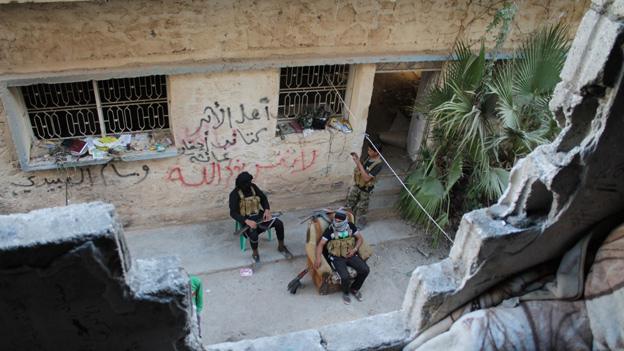Powers to stop British jihadists returning to UK - PM
- Published
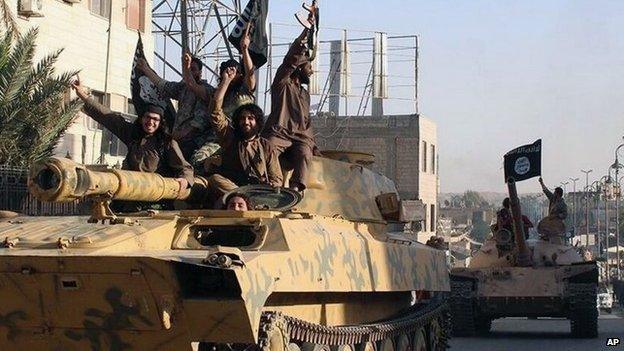
British jihadists who travel abroad to fight could be prevented from returning under new powers outlined by the PM.
David Cameron said the special exclusion orders - which could last for two years or more - would bar suspected fighters from entering the UK unless they agreed to strict controls.
Officials would also have the power to stop would-be jihadists leaving the UK.
Critics have questioned the legality of the measures, while Labour said more should be done to stop radicalisation.
Mr Cameron, who is in Australia for the G20 summit, announced the plans in a speech to the country's parliament in Canberra.
The proposals - which were first outlined by the prime minister in September, external - form part of the Counter-Terrorism Bill, due to be published before the end of the month. Downing Street said it hoped the bill would be law by the end of January.
David Cameron announced new anti-terror powers during a speech to the Australian Parliament
Under the Temporary Exclusion Orders, British citizens suspected of fighting with Islamic State (IS) militants would be stopped from re-entering the UK unless they gave themselves up at the border.
Suspects would have their passport cancelled and their name would be added to a "no-fly list" that would prevent them travelling to Britain.
They would only be allowed to return if they agreed to be escorted by the police before facing either prosecution or close supervision under monitoring powers.
The exclusion orders would last for up to two years at a time and could be renewed. Breaches could lead to a prison sentence.

Analysis
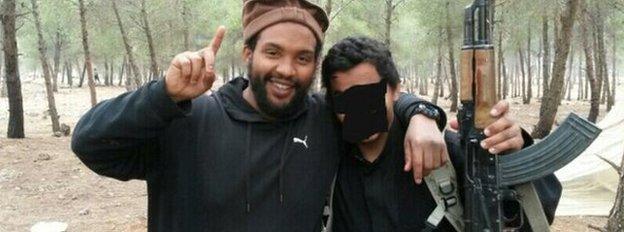
British jihadists such as Aine Davis (left) - named in court as fighting in Syria - could face tough controls
By Robin Brant, BBC political correspondent
The plans form part of the Counter-Terrorism Bill that the government hopes will be law by the end of January.
But it is highly contentious and there are serious concerns about whether it is workable given other established laws on citizenship, immigration and human rights.
Critics fear that excluding Britons from returning to the UK - even if they face the most serious national security allegations - could amount to making them stateless.
There are numerous questions that lawyers and politicians will have about the legality of what is being proposed.

Addressing Australian MPs, Mr Cameron said: "We have to deal with the threat of foreign fighters planning attacks against our people.
"Your prime minister has given a strong international lead on this, helping to galvanise the UN Security Council with a powerful address.
"Last month this parliament passed new legislation to tackle foreign fighters, external. And we will shortly be introducing our own new Counter-Terrorism Bill in the UK."
Former attorney general Dominic Grieve: "British-born nationals cannot be barred"
Mr Cameron said the new powers would stop British nationals returning to the UK "unless they do so on our terms".
Police and some border officers will also be given the power to seize passports if they have reasonable suspicion that someone is travelling abroad for terror-related activity - including those under the age of 18.
Passports could be held for 30 days, subject to a magistrate's review.
And airlines could be fined if they did not comply with the UK's requirement to screen passengers and stop suspects from boarding planes.
Government officials have insisted the new powers are not designed to remove citizenship.
"We are putting conditions on their [suspects'] ability to travel," one official told the BBC.
"This would significantly strengthen our armoury and would be among the toughest in the world in terms of cracking down on foreign fighters."
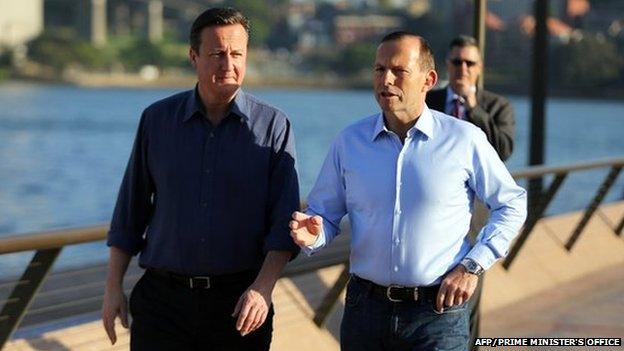
Australian Prime Minister Tony Abbott, pictured with Mr Cameron, passed a counter-terror bill last month
Lord Carlile, the former independent reviewer of terrorism legislation, told the BBC he thought the exclusion orders would be legal.
He said: "These measures sound as though they will be found to be legal, they will be found to be proportionate, they will be within the European Convention on Human Rights, because they do not ban a UK citizen from entering the United Kingdom if they have no other nationality, they place restrictions on it.
"We can't prevent them from coming back full stop if the only citizenship they have is British. But it is perfectly reasonable for countries to work together to ensure that radical activity is limited."
Abubaker Deghayes, who has lost two sons fighting in Syria, says the plans are not workable
Chris Phillips, former head of the National Counter Terrorism Security Office, said people needed to know they could not be a "gap-year jihadi".
He said: "This is sending out the message to people that are thinking about going out there: 'Look, don't do this, take your personal responsibility, we fought very hard for our freedoms in this country, but you don't have the freedom to commit murder overseas'."
But Abubaker Deghayes, two of whose three sons who went to fight in Syria have been killed, said the measures were "not workable".
He said: "It's another legal limbo, like Guantanamo Bay if you like.
"This has made it even worse for the British government because more countries will go to the international court at The Hague demanding that Britain takes its citizens."
'Toxic waste'
Conservative former Attorney General Dominic Grieve said: "Providing restrictions which ensure that somebody doesn't get back into the country without the authorities knowing about it when they may be wanted for a serious offence, or they would wish to put them under some kind of order to control them, is perfectly acceptable."
Shami Chakrabarti, director of campaign group Liberty, said the measures could leave some people in effect "stateless".
"It's wrong in principle and wrong for practical security as well to dump your citizens like toxic waste into the international community," she said.
Human rights barrister Hugh Southey said the proposals did not appear to be compatible with domestic or international law.
"Certainly my reading has always been that the right to come back is an unconditional right because it is the most fundamental right of your citizenship," he said.
"Obviously, when you come back restrictions can be imposed on you; restrictions are imposed on all of us by the law. But until you come back you are entitled to that basic right to enter the United Kingdom."

Yvette Cooper, Labour's shadow home secretary, said "much more" needed to be done to prevent radicalisation in the first place.
"We will look carefully at any proposals the prime minister brings forward, though with half of the fighters who have gone to Syria having already returned, the government should be introducing mandatory de-radicalisation programmes as a priority.
"Our border controls are simply not picking people up, and no new orders will change that," she said.
The Liberal Democrats said the steps were "agreed government policy" which were "sensible, well-considered measures that get the balance right between plugging the gaps of our security measures and safeguarding the liberty of our citizens".
Royal Prerogative
The intelligence services have estimated there are about 500 Britons who have gone to Iraq or Syria to fight for IS.
About 250 are believed to have returned to the UK but, according to Mr Phillips, five a week or more are leaving.
At the Conservative Party conference Home Secretary Theresa May said she had removed the passports of 25 Britons seeking to travel to Syria since April 2013 under the Royal Prerogative.

In Australia
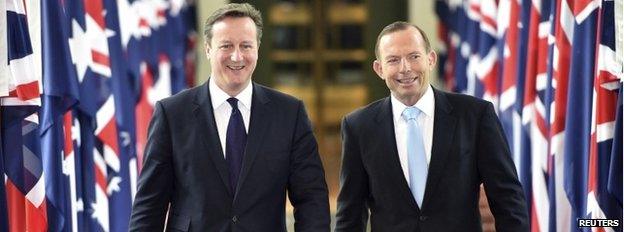
Phil Mercer, BBC News, Sydney
There was a standing ovation for David Cameron at the end of his 20-minute speech to MPs and senators on a baking day in Canberra. The Conservative leader is only the second British prime minister to address the Australian parliament. He spoke of reawakening the UK's "buccaneering" economic spirit and of a bill to tackle British jihadists fighting in Syria and Iraq.
Mr Cameron is among friends here. His Australian counterpart Tony Abbott is also championing new powers to fend off the threat of home-grown extremism. He praised a lasting British legacy in its former penal colony; from democracy to the rule of law and from the monarchy to the English language.
There was, however, no mention in the leaders' speeches to parliament of climate change - proof, according to his critics, of Mr Abbott's inept response to a global emergency. Canberra will also welcome two of Asia's most powerful men in the coming days. Chinese president Xi Jinping and Indian Prime Minister Narendra Modi will address MPs next week after the G20 summit.

During his speech, Mr Cameron also said the UK was working with internet firms on the issue of removing extremist online material - but added there was still "further to go".
"This is their social responsibility and we expect them to live up to it," the prime minister told MPs.
Downing Street later said major internet companies had agreed to strengthen filters to ensure children and young people were protected from viewing extremist material.
A spokesman said four of the main service providers - BT, Virgin, Sky and TalkTalk - had also agreed to host buttons allowing the public to report such content.
The measures were "a positive step", Downing Street said.
- Published14 November 2014
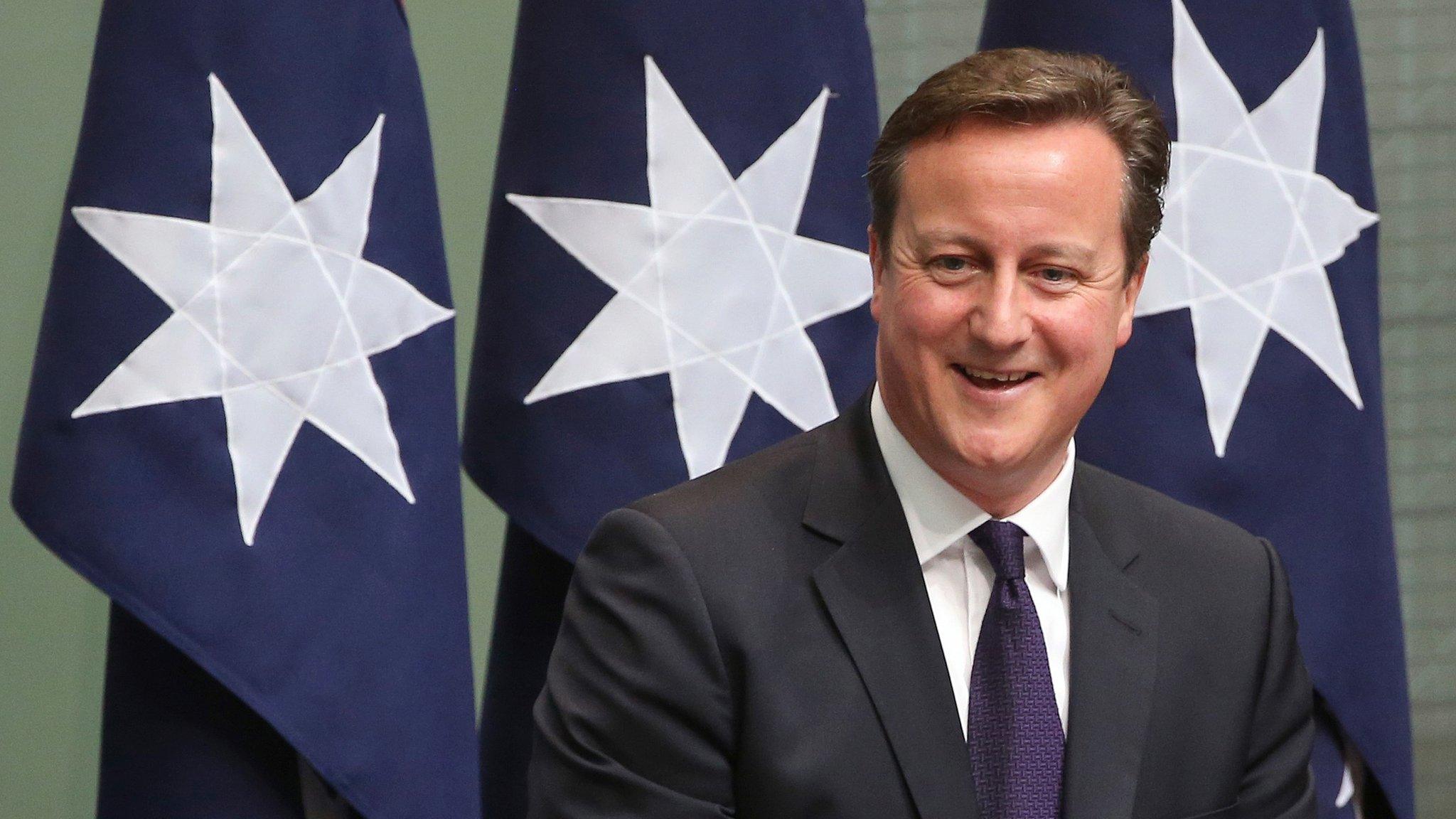
- Published14 November 2014
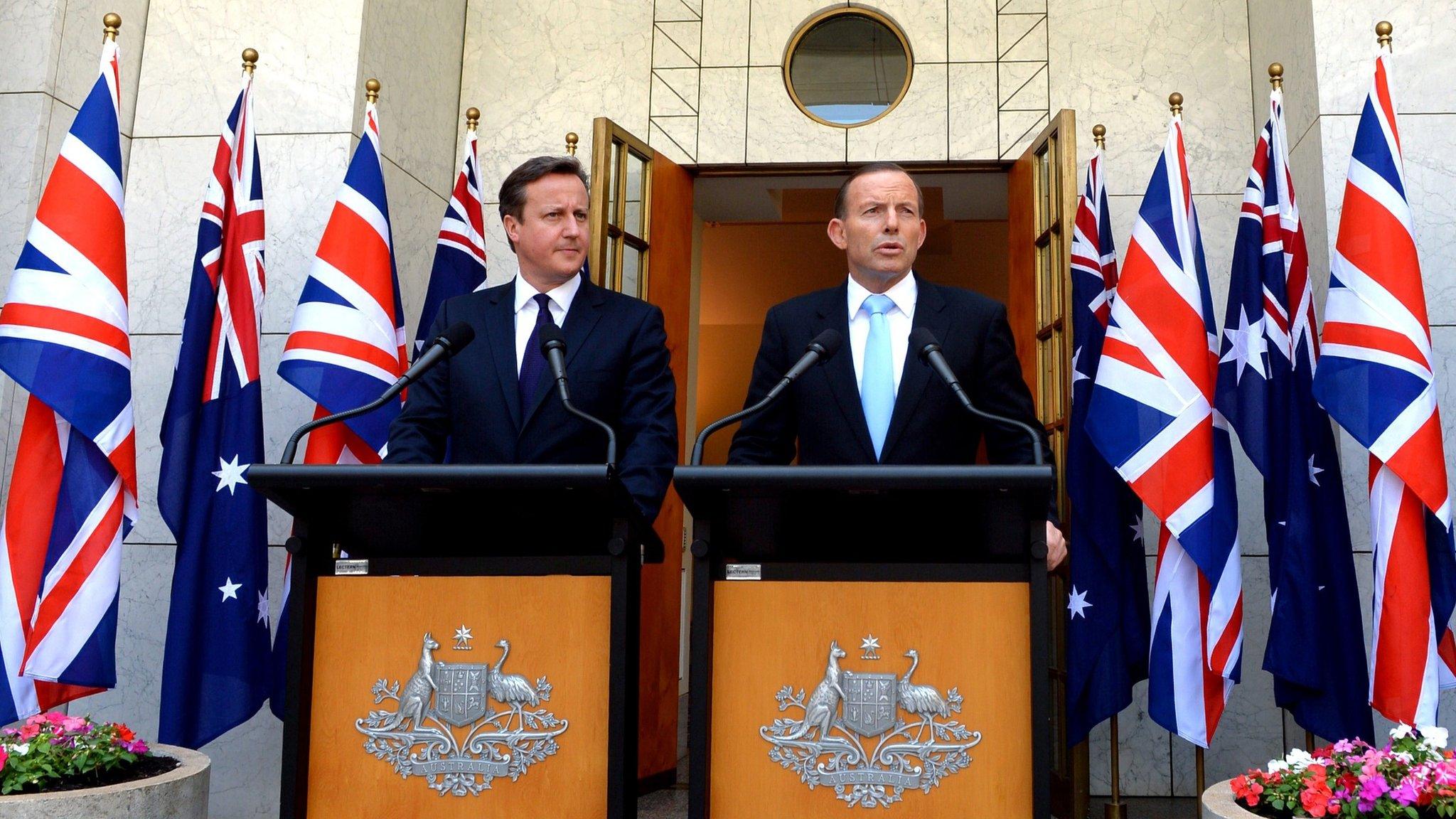
- Published1 September 2014
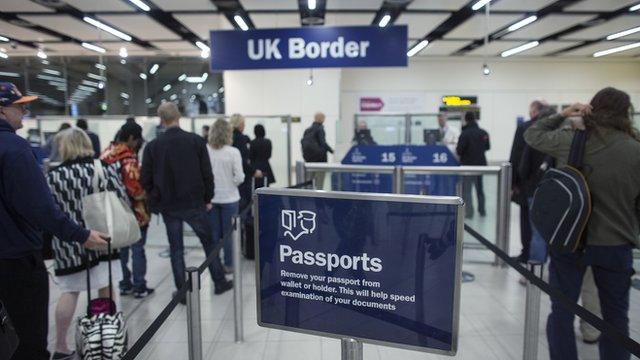
- Published1 September 2014
- Published15 October 2013
